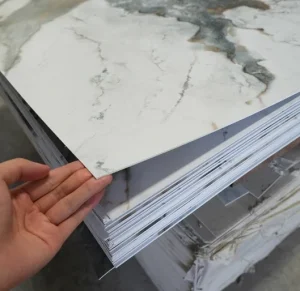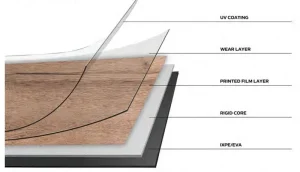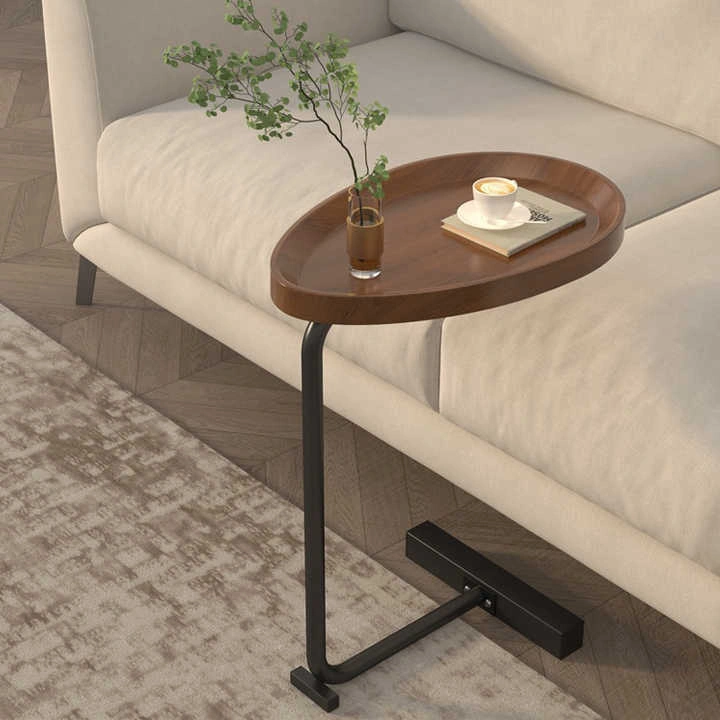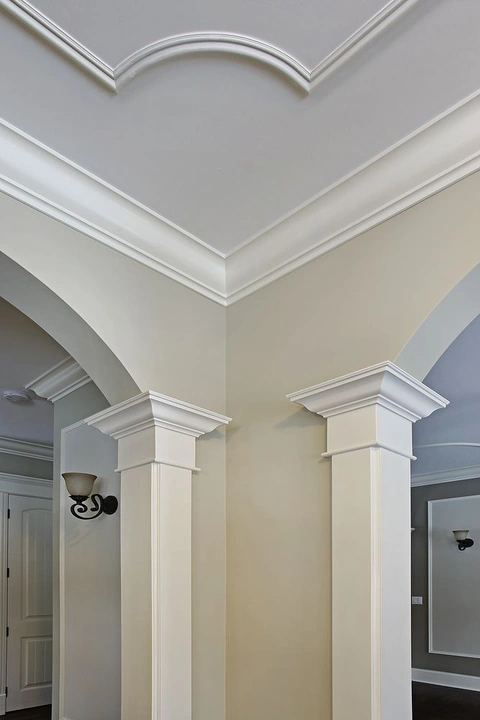What Makes SPC Flooring Stand Out?
Key Features of SPC Flooring
 SPC flooring, or Stone Plastic Composite flooring, has been a popular choice in recent years due to its excellent features. SPC flooring is simple to install, water-resistant, formaldehyde-free product, long-lasting, easy to clean and anti-slip. All these features are making it an ideal option for residences and workplaces. SPC flooring is available in varying thicknesses as well, so the customers can choose it according to their need.
SPC flooring, or Stone Plastic Composite flooring, has been a popular choice in recent years due to its excellent features. SPC flooring is simple to install, water-resistant, formaldehyde-free product, long-lasting, easy to clean and anti-slip. All these features are making it an ideal option for residences and workplaces. SPC flooring is available in varying thicknesses as well, so the customers can choose it according to their need.
SPC is manufactured by mixing calcium powder, with polyvinyl chloride, popularly known as PVC, and stone powder before it is extruded with heat. The specific blend not only makes the material eco-friendly but also great in terms of endurance as much as it is resistant to wear and water damage. Additionally, the lock click feature makes installation a breeze!
The Durability of SPC Flooring Compared to Other Options
SPC flooring is highly reputed for its durability feature that distinguishes it from other products currently being offered in the market. The scratch-resistant and hard surface of SPC boards makes them best suited for busy areas, i.e., shopping malls and hospitals. In comparison to hardwood flooring or laminate flooring, SPC flooring can handle more pressure without any indication of wear and tear. Its ability to turn a blind eye to scratches as well as dents makes it a convenient option for households with pets or children.
In addition, it passes the B level of fire safety—extinguishing when burning and not aiding combustion—thus being safer from fire than wood floor products.
How Does SPC Flooring Perform Against Common Flooring Types?
Comparing SPC Flooring with Hardwood Floors
Wooden floors are commonly admired for their charm. But they do come with a disadvantage in that they are susceptible to water damage and more maintenance in comparison to SPC flooring consisting of plastic stone powder, which ensures absolute waterproofing of the building. Making it an excellent option for areas with spill-prone environments or high humidity.
Moreover, hardwood flooring is pricier compared to SPC choices. Hardwood needs refinishing for sustaining its look in the long run, but SPC scratch resistant finish needs little maintenance.
The Differences Between SPC and Vinyl Plank Flooring
SPC and vinyl plank flooring are preferred options available today in the market scene with their shared features, such as water resistance and effortless upkeep. But their inherent variations occur in their make-up – SPC is harder than the likes of Wood Plastic Composite (WPC) or regular vinyl planks mainly because of its stone powder make-up.
SPC is more robust with this extra rigidity, more suitable to long-term furniture or daily traffic than vinyl planks, perhaps softer but without the same impact and denting resistance as SPC.
What Are the Benefits and Drawbacks of Choosing SPC Flooring?
Advantages of Installing SPC Floors in Your Space
Water Resistance and Maintenance Benefits
 SPC flooring is extremely well-known for its water resistance and is a very commonly used option in spaces that have a tendency to be damp or humid. SPC flooring is used due to its installation method and has features such as resistance to water damage and no presence of formaldehyde. SPC flooring is highly resistant with the added advantage of being slip-resistant and easy to clean. These are advantages that make SPC flooring highly suited to areas like kitchens or bathrooms and basements where other floor types may not be so resistant.
SPC flooring is extremely well-known for its water resistance and is a very commonly used option in spaces that have a tendency to be damp or humid. SPC flooring is used due to its installation method and has features such as resistance to water damage and no presence of formaldehyde. SPC flooring is highly resistant with the added advantage of being slip-resistant and easy to clean. These are advantages that make SPC flooring highly suited to areas like kitchens or bathrooms and basements where other floor types may not be so resistant.
Cost-Effectiveness Compared to Traditional Floors
SPC flooring offers a benefit in terms of affordability compared with solid wood flooring and premium tiles while maintaining quality and durability standards intact, despite its cost effective nature—a desirable choice for homeowners seeking a stylish appearance within budget constraints.
Moreover, its longevity means cost savings in the long term. SPC boards are scratch-resistant and long-lasting, hence an ideal choice for high-traffic areas like malls and hospitals. In contrast to materials that will need constant repair or replacement, SPC flooring maintains its look and performance as the years go by.
Are There Any Disadvantages to Using SPC Flooring?
Despite the advantages of SPC flooring, there are also some drawbacks associated with it that need consideration. One significant issue is its conductivity. The stone powder material conducts heat quite efficiently, which leads to the ground absorbing heat rapidly in winter months. Due to this feature of SPC flooring, it could result in a cooler feeling underfoot during colder seasons unless accompanied by suitable insulation or heating arrangements are in place.
Why Choose Sangni as Your Procurement Agent for SPC Flooring?
Comprehensive Services for Sourcing High-Quality SPC Floors
When procuring SPC flooring, Sangni is an effective sourcing agent with full-service solutions. To help clients procure great SPC flooring, Sangni collaborates with reliable suppliers in the industry.
Sangni not only procures top-notch materials but also specializes in providing a range of products that meet varied needs effectively. They offer SPC flooring in thicknesses so that clients can select options that suit their own requirements. Whether you require flooring for heavy-traffic commercial areas or water-resistant products for sensitive areas like kitchens and baths, Sangni’s supplier relationship guarantees that you receive the perfect fit.
Facilitating a Smooth and Reliable Procurement Process
Ordering products could be challenging for someone who lacks the experience and knowledge in the area of specialty required to conduct the task one is doing. This is where Sangni proves useful by easing and making straightforward the complicated process of acquiring SPC flooring for clients. From finding suppliers and guaranteeing competitive pricing to implementing strict measures for quality control, Sangni adeptly manages every step of the process with efficiency.
Understanding the value of cost efficiency in purchasing is crucial for Sangni well. SPC flooring comes at a budget friendly price compared with solid wood flooring and premium tiles. Through negotiation with suppliers for their client’s benefit, they secure access to cost effective products that maintain a balance between quality, functionality and visual appeal.
For individuals who prioritize friendliness SPC flooring, purchased from Sangni provides reassurance. Its formaldehyde free composition enhances air quality an aspect for those mindful of their health. Hence, it becomes a preference for offices and homes alike.
Frequently Asked Questions about SPC Flooring
Q: Is SPC flooring better than LVP?
A: Overall, SPC flooring is superior to LVP flooring since it’s less likely to dent and damage and is more durable. SPC’s rigid core, typically made from stone-plastic composite, is less likely to be impacted and worn down by wear and tear compared to the softer, more flexible LVP core.
Q: What is an SPC flooring?
A: SPC flooring stands for Stone Plastic Composite flooring. It is a rigid core layer made of a combination of natural limestone powder, polyvinyl chloride, and stabilisers. The unique formulation provides SPC flooring with its exceptional strength and water resistance.
Q: How long does SPC flooring last?
A: SPC (Stone Plastic Composite) flooring can last 10 to 25 years or more with proper installation and maintenance. It may have another actual lifespan based on the quality of the floor, the wear layer thickness, and how much traffic it receives.




